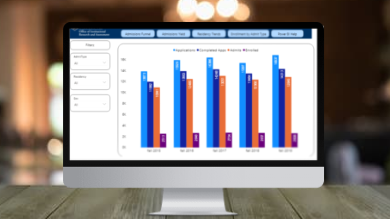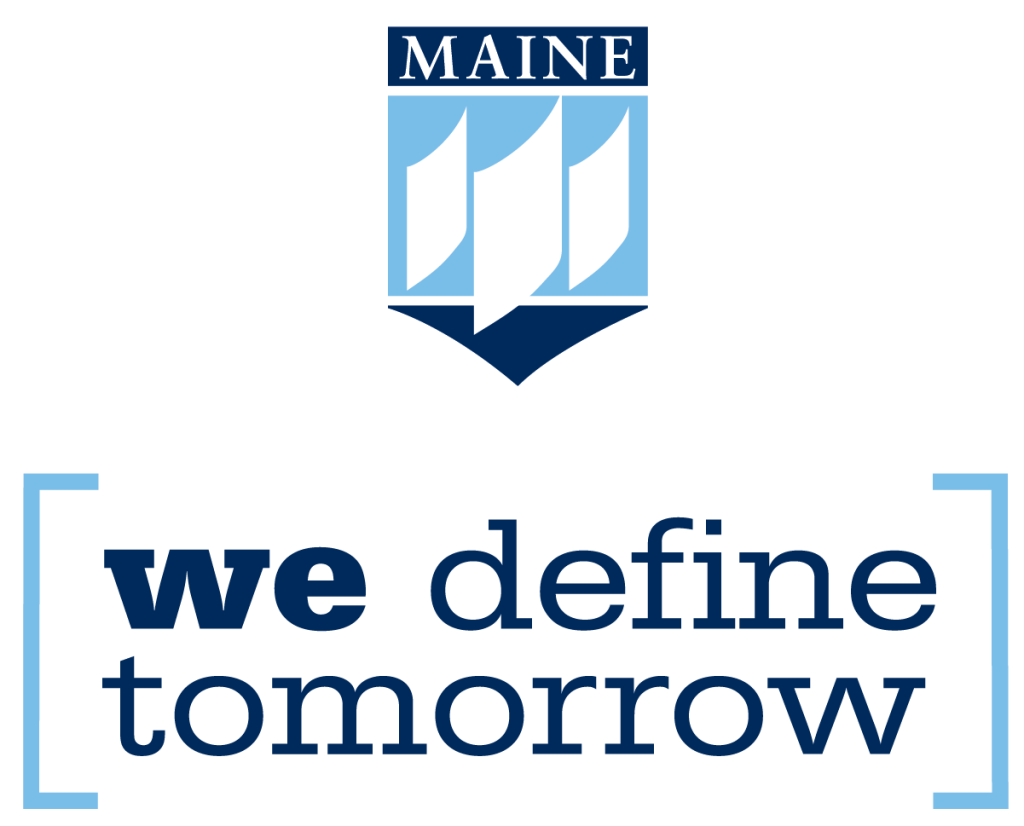Strategic Enrollment
& Retention Action Plan
Our Guiding Compass to Growth, Belonging, and Perseverance at the
University of Maine and University of Maine at Machias
To view, please log in using your existing UMaine single sign-on email and password.
Strategic Enrollment Management (SEM) Action Plan
The Strategic Enrollment & Retention Action Plan for the University of Maine and University of Maine at Machias builds from the numerous recommendations and strategies, forming connections to spheres of action from these other initiatives and provides the means for units, as well as individuals, across the University community to make progress and achieve results. It will ensure that available resources flow to where they can make the greatest difference in the lives of our students.
Introduction from the Executive Vice President for Academic Affairs & Provost
The landscape of higher education is shifting before us. Despite modest gains in enrollment over the last decade at the University of Maine, Fall 2022 saw the smallest incoming class in over a decade. At the regional campus in Machias, similar challenges persist to recruit and retain our learner population.
Maine faces significant declines in the number of high school graduates and more learners choosing to forego a traditional four-year college experience. Our fiscal realities include rising costs, substantial deferred maintenance, and a budget increasingly dependent on tuition and fees. The pandemic upended traditional learning modalities and technology while also exacerbating issues around mental health, physical health, and a lack of personal connection and support.
While these challenges and disruptions are real, they are not insurmountable. UMaine and UMaine Machias faculty, staff, and students are dedicated, resilient, and resourceful. To respond to the opportunities before us, we propose a Strategic Framework for Enrollment Management Recruitment and Retention. This multi-faceted, comprehensive strategy engages the entire campus community and beyond to achieve growth in our learner populations, strengthening our identity and sense of belonging, and ultimately persevering and achieving success. These action steps align with our University’s mission, vision, and values and complement our overall strategic plan.
To accomplish the goals and objectives, UMaine and UMaine Machias will need to utilize every tool at our disposal to support both prospective and enrolled students. While fortunate to have seen increases in our state appropriations, much of our resources are derived from tuition, fees, external grants, and private fundraising. We are also keenly aware that we cannot rely solely on traditional-age high school students from Maine to be successful. We must broaden our enrollment management strategies with an emphasis on growing and diversifying our population of learners and commit to an environment that supports all learners to succeed and graduate.
The SEM Recruitment and Retention Action Plan 2023-2027 is the culmination of over six months of work by faculty, staff, administrators, alumni, and external partners, and reflects a unified commitment to achieve our strategic enrollment management goals. The expectation is for this framework to be a living document. It is meant to be forward-thinking, flexible, and based on regular measurable outcomes and benchmarking. It will be governed by an executive team, led by an implementation team, and propelled by a number of action-oriented task forces across the UMaine and UMaine Machias community. These processes will be further enhanced by our values of shared governance, transparent culture, and accountability for achievement.
SEM Action Plan Goals 2023-2027
UMaine’s five-year Strategic Enrollment & Retention Action Plan begins with a framework of three action-oriented goals, each with its own set of objectives. The framework ensures action steps are taken and uses key performance indicators (KPIs) to track progress toward goal achievement. Action in both recruitment and retention is vital to the health of the university, sustaining our university community across generations, and ensuring that the University’s resources enable it to fulfill its mission in the short and long term.
Goal One

Grow Enrollment across our Learner Populations
Achieving student enrollment growth at our flagship campus in Orono, our regional campus in Machias, other statewide locations, and through online and continuing education that reflects our strategic vision and values while maintaining our fundamental principles of access and affordability.
Goal Two

Foster a Sense of
Belonging and Identity
Understanding our identity as Maine’s land, sea, and space grant flagship university with a mission of teaching, scholarship, and service in Orono, Machias, Portland, and statewide. Diversity, Equity, and Inclusion contributes to the sense of belonging and identity of our community, better preparing our students for lifelong well-being and career connections through educational opportunities and meaningful support.
Goal Three

Improve Perseverance and Student Success
Helping our students to thrive, succeed, and identify support through opportunities both inside and outside of the classroom that sets them on the right path to achieve their educational goals in an environment that is accessible, affordable, and prepares them for life after UMaine.
A Call To Action
Guided by our goals and objectives as identified in this document, the University of Maine and University of Maine at Machias calls on our entire campus community to support the implementation of the 2023-2027 Strategic Enrollment Management Recruitment and Retention Action Plan Framework. At the highest level, this strategy is aligned with our University’s strategic vision and values framework.
UMaine and UMaine Machias must develop robust, lasting action around marketing, recruitment, and retention. Aspects of this strategic recruitment and retention action plan will require new investments of resources whereas others will utilize substantial changes to existing processes and practices. Collectively, the strategies outlined above will help grow our learning populations, increase retention and student success, and ultimately lead to a more engaged, active, and inclusive community that is fully dedicated to our statewide mission as both a flagship and a regional campus.
The opportunities here can only be achieved by a coordinated process across the whole university community. Campuswide leadership and participation in this framework will make success more likely, as implementation will require us to prioritize, organize, and hold ourselves accountable.
Defining Tomorrow means embracing the values that all learners belong here at UMaine and UMaine Machias and that we are attracting, retaining, and graduating successful students who embrace our identity founded upon the principles of diversity, equity, inclusion, and belonging. It means opening our minds to new perspectives, new possibilities, and new challenges. It means working together to make UMaine and UMaine Machias a central part of our student’s education, so that it may serve as a guide across one’s whole life.
Thank you for all of the wonderful work you do and the ambitious work ahead in implementing our strategic enrollment management framework.
Get Involved!
Have questions? Have ideas to share? Want to join an implementation task force?
Initiatives Related to SEM Action Plan

Key Performance Indicators (KPIs)
In Fall 2020, a 13-member working group convened to develop a proposal for identifying a set of key performance indicators for UMaine. These indicators track the progress of the University of Maine and the University of Maine at Machias toward meeting the goals of our Strategic Vision & Values, as well as our progress toward achieving the Strategic Enrollment & Retention Action Plan.

Connecting to UMaine2025
The UMaine2025 or UMaine Compass Commission was formed in March 2021 with a charge to produce a dynamic vision of UMaine as a student-centric, research-focused, diverse and inclusive institution that serves as a resource for the community, a thought leader in the state and region, and a proactive force in shaping the evolving needs and demands of our society. The 25-member Commission developed nine vision areas and 120 recommendations. Many of these vision areas and recommendations will form the basis for the strategic enrollment and retention work in the years to come.

Embracing Diversity, Equity, & Inclusion
The President’s Council on Diversity, Equity, and Inclusion was formed in Fall 2020 and charged with advising “the President and members of the President’s Cabinet on matters of diversity, equity, and inclusion at the University of Maine and the University of Maine at Machias, and to provide an annual report to the President on the status and efforts to ensure that inclusive excellence is foundational at the University. In December 2020, the 33-member Council released its initial recommendations with 45 items to make progress on. These recommendations encompassed culture integration, DEI governance, retaining great talent, search, and enrollment, and supporting DEI professional learning.

UMS TRANSFORMS UMaine
The UMS TRANSFORMS UMaine Initiative is the primary part of a historic $240 million commitment from the Harold Alfond Foundation to the University of Maine System to bring about transformative change to the state’s largest educational, research, innovation, and talent development entity. The grant is both a gift and a challenge that manifests the transformative power of education. “In aggregate, the 2020 UMS grant—the largest ever by the [Harold Alfond] Foundation—represents a strategic, long-term effort to strengthen the capacity of Maine’s public universities to meet the state’s most pressing workforce and economic needs.”


